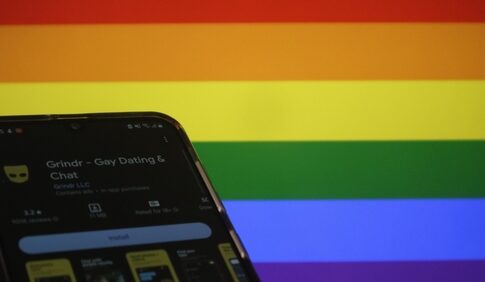An unverified claim by a White House official attacks a former GOP congressman, raising concerns about political discourse and privacy.
White House Official’s Allegation Against Kinzinger
Recently, Steven Cheung, the White House Communications Director, posted a collage of photos on X, suggesting they depicted former Republican Congressman Adam Kinzinger on the gay dating app Grindr. The photos, though not showing the subject’s face, referenced Kinzinger’s distinct U.S. Air Force pilot’s badge tattoo. This claim has yet to be verified by any credible source, and Kinzinger has not made a public statement addressing the situation.
The posting of these images has sparked widespread speculation and commentary on social media, with a polarized response. Some users have defended Kinzinger, questioning the ethics and validity of the attack, while others have mocked or questioned his credibility. The viral nature of the post underscores the volatile environment of political discourse, where social media can amplify both verified and unverified claims.
Political Context and Implications
This incident arises from a heated exchange over President Trump’s decision to demolish the East Wing of the White House to make way for a new ballroom. Kinzinger criticized the move, prompting a defensive response from Cheung, which escalated to personal insults and the posting of the alleged photos. This event reflects the adversarial nature of current U.S. political discourse, where personal attacks often overshadow policy discussions.
The lack of independent verification of the images limits their traction in mainstream media but ensures ongoing speculation online. The story remains in a holding pattern, with the public and media awaiting either a response from Kinzinger or further evidence regarding the authenticity of the photos. This uncertainty perpetuates a climate where reputation attacks can flourish unchecked.
Consequences for Political Discourse
If the allegations are proven false, they could further erode trust in political communication and contribute to the polarization of public opinion. Conversely, if they are substantiated, the repercussions for Kinzinger could be severe, affecting both his public image and personal life. This case highlights the ethical challenges facing media and social platforms in moderating content and protecting individuals from reputational harm.
The broader implications extend to the political community, where such tactics may become more commonplace, further degrading the standards of civility in political exchanges. The incident raises important questions about privacy, consent, and the ethics of public discourse in the digital age.
Sources:
Twitchy: Steven Cheung and Adam Kinzinger Alleged Pictures
Resist the Mainstream: Trump Hater Faces Explosive Gay Scandal Allegations

